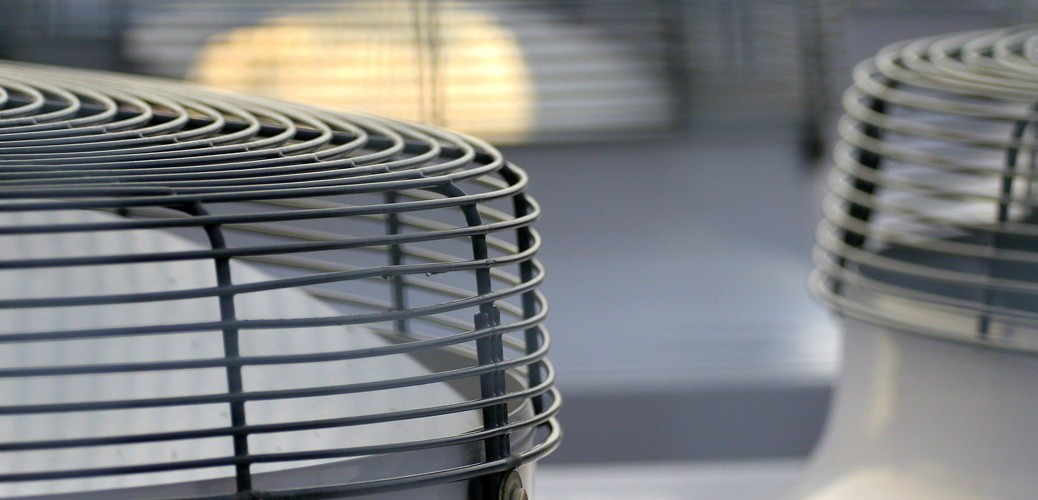The sceptics among us may joke that just about everything we do contributes to global warming in some way or another. While their point may be a somewhat exaggerated way of looking at things, it’s true that there are many ways in which we can cut down on greenhouse gas emissions in just about every industry. Commercial air conditioning installation, servicing and repair is one of them, thanks to F-gas regulations.
The Montreal Protocol, created in 1987, remains one of the most ambitious and important global agreements designed to reduce the production of substances harmful to the Earth’s ozone layers. Today, that means that companies involved with supplying, installing and servicing air conditioning units are committed to reducing the harmful greenhouse gases which some models use.
In today’s article, we’ll discuss what the F-Gas regulations within the air conditioning industry are and how their phase-down affects you.
What is an F-Gas?
Let’s try and keep this simple. In 2016, the Kigali Amendment was added to the Montreal Protocol to “phase down the production and consumption of hydrofluorocarbons (HFCs) worldwide.”
HFCs are one of the most popular gases that make up a large group of greenhouse gases known as fluorinated gases, or F-Gases. These F-Gases, which are the name given to the group of chemicals containing fluorine, are commonly used in air conditioning and refrigeration. Countries all over the world have agreed to significantly reduce the use of these harmful man-made gases.
Why the Regulations?
Many European countries see the EU F-Gas Regulations and the HFC phase-down as a huge priority. First of all, it’s important that EU countries show their commitment to the Kigali Amendment and the Montreal Protocol. This commitment forms part of a greater ambition to reduce the impact of global warming within our atmosphere.
F-gases are capable of trapping heat in our atmosphere and their impact can be devastating. They’re one of many factors contributing to global warming. Some studies have revealed that the effect of F-Gases on global warming is up to 23,000 times greater than the effect of carbon dioxide. We’re all aware of the problems that carbon dioxide causes – continued use of F-Gases could have far graver consequences.
And those consequences have been recognised. The EU F-Gas regulations, which are a part of the Montreal Protocol, state that there should be a 79% reduction in the use of HFCs by 2030. The aim of the phase-down is to significantly reduce the use of these harmful gases and increase the use of suitable alternatives.
What are F-Gases Used For?
F-Gases are used in a surprising number of industrial products. When they were first introduced, they were seen as a suitable alternative to chlorofluorocarbons (CFCs) and hydrochlorofluorocarbons (HCFCs). They have now also been deemed too harmful to use.
The main F-Gases which are used are HFCs, and they’re commonly used in refrigeration, air conditioning and heat exchanging equipment. Interestingly, they’re also used in fire extinguishers, solvents and even aerosols.
What Does This Mean for You?
The majority of commercial property owners will never have heard of F-Gases or HFC. So why are we telling you about F-Gases? Well, the HFC phase-down means that air conditioning units using any F-Gases will need to be replaced. In order to adhere to F-Gas regulations, there will also be a servicing ban on existing and out-of-date units.
Companies that manufacture and supply equipment which contains F-Gases are re-designing their products and testing the efficiency of alternative chemicals. This also means that the companies installing and servicing these air conditioning units need to keep up-to-date with the regulation deadlines and fully train their staff on alternative equipment.
Significantly, if your commercial property uses equipment which involves F-Gases, you too will be affected by the phase-down. It’s important that your air conditioning units are legal and that if they break down, air conditioning professionals are able to service and repair them.
If you have any questions about the F-Gas Regulations and The HFC Phase-Down then please don’t hesitate to get in touch with our KES Facilities team. Our staff will be able to answer any queries you have about your commercial air conditioning units and can help you keep in line with regulations.


